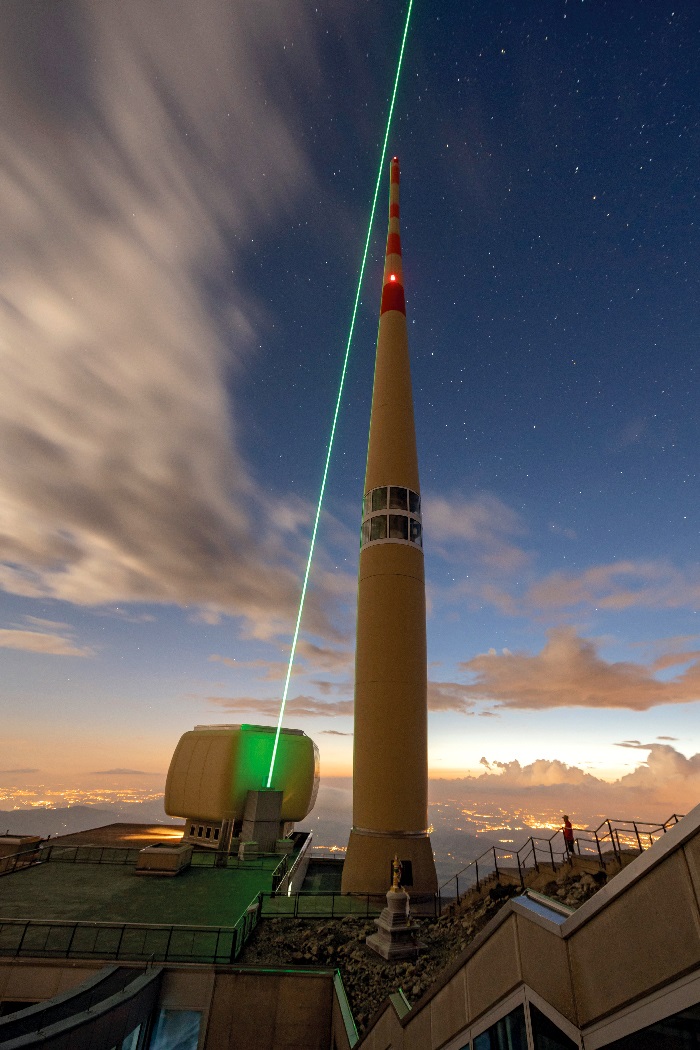
TRUMPF / Martin StollbergA laser beam (green) is fired into the sky next to the 124-meter-high telecommunication tower on Säntis MountainTRUMPF / Martin Stollberg
European scientists have managed to deflect lightning from a thunderstorm for the first time using short, intense laser pulses. The laser was fired from a device the size of a car next to a 124-meter-high telecommunications tower in the Swiss Alps in the summer of 2021. During storms that occurred in a 10-week period, the device fired a thousand laser pulses per second, intercepting four rays of lightning more than 50 meters from the tower and diverting them to the antenna’s lightning rod, preventing them from striking in unwanted places. The laser beams, monitored by high-speed cameras, change the properties of the air and open a discharge path for the electricity that forms in the clouds. “It’s like drilling a hole through the air,” Aurélien Houard, a physicist from the Applied Optics Laboratory at École Polytechnique, Paris, who led the project, told the journal Nature. Metal lightning rods attract lightning and safely dissipate the charge, but they do not deflect lightning and they have a limited range. If improved and made cheaper, laser beams could reach higher in the sky, point in any direction and provide an alternative anti-lightning system for sensitive buildings such as airports and hospitals (Nature and Nature Photonics, January 16).
Republish